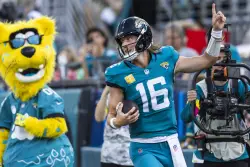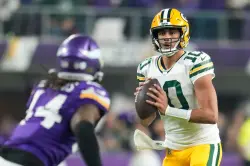Real World Economics: Cavemen didn’t need banking regulations; we are not cavemen
Edward Lotterman Humans individuals and families don t produce exactly as much as they consume in any given period That s the reason why paleolithic humans banded together and gathered as well as hunted Grains and dried fruits could be stored to eat in when they could not grow We re not much different nowadays in the way we use support That is why so far at least the advancement of money and banks has had greater importance to human survival than splitting the atom or sequencing DNA Prior to money and banks if someone produced more of something than needed the excess had to be stored or traded for other objects if someone produced less than needed other people s guidance had to be procured either by force or more resourcefully by business or barter A weaver wanting meat might seek a butcher needing cloth Money even primitive developed for three classic functions that exist in contemporary times It serves as a standard of value an accepted yardstick by which to describe what things are worth as a medium of exchange that facilitated arrangement and as a store of value reducing the efforts and risks of securing physical things for later sale or use Money simplified all that But it needed safeguarding So eventually individuals with facilities to guard their own wealth would offer to hold and later return the money of others In the meantime the person holding the money could use specific in business programs Thus the advancement of banks and later securities As an incentive for the temporary use of other people s money the storing merchant might add a small sum when returning the original amount given for safekeeping interest although major religions initially banned this At various point merchants holding the money of others might share in the profits of business ventures rather than paying interest A Venetian merchant might offer someone with excess funds the chance to fund a tenth of a shipload of goods from Venice to Constantinople and return The profits of this venture might be very large compared with a fixed interest rate on money kept But the risks would be greater There might be pirates storms or reefs leading not only to zero profit but the entire loss of the principal invested So by the High Middle Ages defined in European history as A D what we now call merchant assets and commercial banks plus mutual funds and hedge funds all existed Insurance developed rapidly And the equivalent of private credit and private equity now two financial swords of Damocles hanging over the global business activity already had been invented All these are financial intermediaries accept money that specific people or organizations want to safeguard or earn a return on They then lend that money to other people or organizations or use it to invest with them for the payment of interest or the granting of an ownership stake All these functions are vital to economies We would all be poorer and information available to us would be used less efficiently if such intermediation did not exist Nowadays bulk of us keep money in checking accounts we can empty with the tap of a card or keyboard Others need to borrow short or long-term using credit again instantly with card or keyboard I pay for groceries and gas often and have monthly income My cousins on the farm must pay for fertilizer in April but won t have soybeans to sell until October Retailers order and must partially pay for Christmas merchandise by June or earlier but won t sell until December A trucker requirements a new rig but will need five years to pay for it I started putting small monthly amounts into a b retirement account for populace school employees in Over years later we take it out at a time Multiple people bought homes with mortgages they must pay for over years And the Trump administration is now floating the idea of -year mortgages ostensibly to make homebuying more affordable There also is intermediation of hazard If a multitude of people wanting safety put money into a bank or mutual fund that intermediary can with prudence make loans or buy stocks and bonds with a range of risks Since exposure is the opposite of safety such funds are large enough to spread that menace among multiple people to absorb losses to any single individual The customer pays the intermediary for the expertise to assess risks and provide collective access to markets to achieve these economies of scale that no small saver-depositor could This concept is fundamental to insurance and is a major factor as in the current era s rising healthcare care costs elicit rising premiums which in turn force healthy people to forgo insurance which in turn further raises rates as absorbing the menace is shared by fewer less healthy customers So having a variety of financial intermediaries is good But they need to be regulated and supervised by objective parties using objective standards If not someone could open a bank take deposits and abscond to a tropical isle An insurance company could sell life or strength care policies pay executives lavish salaries and go bust when policyholders start to die off or get sick Unfortunately supervised financial institutions find regulations onerous Innovations make regulations obsolete For decades we prohibited ordinary commercial banks from paying over interest on savings accounts We did let a special category savings and loans pay That attracted deposits but S Ls could only make home mortgages and small consumer loans to households not large loans or business loans We also allowed credit unions for groups with a common bond to accept savings deposits and make small loans but not offer checking accounts Over the same period expenditure firms began to offer mutual funds in which money from thousands of households was invested in corporate stocks and various bonds Congress established a panoply of tax-advantaged categories of funds IRA SEP k b Keogh Roth and all the rest that offered varied incentives through the tax code For a while the monopoly of commercial banks and S Ls on checking accounts held But then credit unions began allowing drafts to be drawn on savings Mutual funds allowed customers to write large checks above particular threshold on their accounts rather than the rigmarole of a withdrawal These innovations all came as unchecked inflation reduced real interest earned on accounts to zero or below Inflation drained billions collectively from small checking accounts Banks began offering toasters and other inducements for new deposits S Ls that had used demand deposits to make long-term mortgages faced illiquidity when customers demanded their money back as dramatized by the plight of fictional banker George Bailey in the film It s a Wonderful Life So we let S Ls earn higher returns lending money for mobile home parks and horse tracks Soon we had the S L problem of the s Chosen S L owners went to jail Members of Congress were bribed Locally distinctive round buildings of green glass were razed to build strip malls Taxpayer money went to replenish tapped-out FDIC and FSLIC funds All the while an agricultural boom set off by Richard Nixon s devaluation of the dollar collided with stratospheric interest rates of Federal Reserve Chair Paul Volcker s tight money hitting unprecedented deficits in Ronald Reagan s borrow and spend years A strong dollar hammered farm exports as badly as it did the import-sensitive U S auto and steel industries Tens of thousands of farms sold on chains of contracts-for-deed went into bankruptcy Sleep-deprived FDIC and Federal Reserve bank examiners closed one farm bank after another specific in all We weathered that and the dot com bubble of the s together with the post- scare and the mega-debacle of collateralized mortgages unfolding after We survived COVID with large federal deficits and a increase in the money supply by the Fed All that liquidity plus seductive innovations like crypto-currencies launched capital markets into the stratosphere Just as in and we have financial institutions and instruments that are new and untested And amidst all this the Fed communicated last week that it is relaxing bank oversight standards Global relations are perilous Here at home we have a farce tragedy As poet William Butler Yeats warned things fall apart the center cannot hold Wait for details in a future column Related Articles Real World Economics Congress has done little to promote competition Real World Economics Understanding socialism in all its forms Real World Economics Senators wake up and smell the tariffs Real World Economics Argentina bailout is a new level of corruption Real World Economics Creative destruction and Argentina s debt dilemma St Paul economist and writer Edward Lotterman can be reached at stpaul edlotterman com


